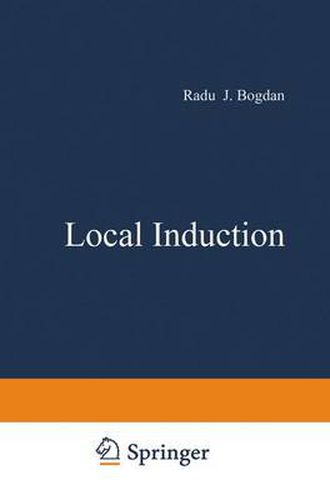Readings Newsletter
Become a Readings Member to make your shopping experience even easier.
Sign in or sign up for free!
You’re not far away from qualifying for FREE standard shipping within Australia
You’ve qualified for FREE standard shipping within Australia
The cart is loading…






This title is printed to order. This book may have been self-published. If so, we cannot guarantee the quality of the content. In the main most books will have gone through the editing process however some may not. We therefore suggest that you be aware of this before ordering this book. If in doubt check either the author or publisher’s details as we are unable to accept any returns unless they are faulty. Please contact us if you have any questions.
The local justification of beliefs and hypotheses has recently become a major concern for epistemologists and philosophers of induction. As such, the problem of local justification is not entirely new. Most pragmatists had addressed themselves to it, and so did, to some extent, many classical inductivists in the Bacon-Whewell-Mill tradition. In the last few decades, however, the use of logic and semantics, probability calculus, statistical methods, and decision-theoretic concepts in the reconstruction of in ductive inference has revealed some important technical respects in which inductive justification can be local: the choice of a language, with its syntactic and semantic features, the relativity of probabilistic evalua tions to an initial body of evidence or background knowledge and to an agent’s utilities and preferences, etc. Some paradoxes and difficulties encountered by purely formal accounts of inductive justification, the erosion of the once dominant empiricist position, which most approaches to induction took for granted, and the increasing challenge of noninduc tivist epistemolgies have underscored the need of accounting for the methodological problems of applying inductive logic to real life contexts, particularly in science. As a result, in the late fifties and sixties, several related developments pointed to a new, local approach to inductive justification.
$9.00 standard shipping within Australia
FREE standard shipping within Australia for orders over $100.00
Express & International shipping calculated at checkout
This title is printed to order. This book may have been self-published. If so, we cannot guarantee the quality of the content. In the main most books will have gone through the editing process however some may not. We therefore suggest that you be aware of this before ordering this book. If in doubt check either the author or publisher’s details as we are unable to accept any returns unless they are faulty. Please contact us if you have any questions.
The local justification of beliefs and hypotheses has recently become a major concern for epistemologists and philosophers of induction. As such, the problem of local justification is not entirely new. Most pragmatists had addressed themselves to it, and so did, to some extent, many classical inductivists in the Bacon-Whewell-Mill tradition. In the last few decades, however, the use of logic and semantics, probability calculus, statistical methods, and decision-theoretic concepts in the reconstruction of in ductive inference has revealed some important technical respects in which inductive justification can be local: the choice of a language, with its syntactic and semantic features, the relativity of probabilistic evalua tions to an initial body of evidence or background knowledge and to an agent’s utilities and preferences, etc. Some paradoxes and difficulties encountered by purely formal accounts of inductive justification, the erosion of the once dominant empiricist position, which most approaches to induction took for granted, and the increasing challenge of noninduc tivist epistemolgies have underscored the need of accounting for the methodological problems of applying inductive logic to real life contexts, particularly in science. As a result, in the late fifties and sixties, several related developments pointed to a new, local approach to inductive justification.